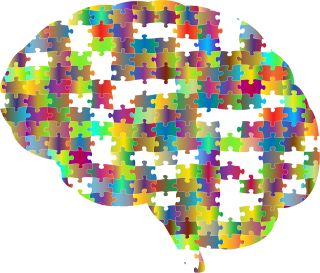Psychopharmacology
What Does Schizophrenia Feel Like?
A Personal Perspective: There are positive, negative, and cognitive symptoms.
Posted April 20, 2023 Reviewed by Michelle Quirk

In my work, I am often asked about what schizophrenia actually is. An emotional condition? A weakness? A personality flaw? The truth is that schizophrenia is none of these things. In fact, it is a physical brain condition that can be compared to other brain diseases and disorders such as Alzheimer’s, Parkinson’s, or stroke. It is not the same as dissociative identity disorder (formerly called multiple personality disorder) and does not involve a split mind.
3 Categories of Symptoms
Schizophrenia is a syndrome of several hundred genetic and nongenetic brain diseases of varying severity that are due to altered brain neuroplasticity and chemistry. Schizophrenia manifests through three categories of symptoms, described as positive, negative, and cognitive.
Positive symptoms are not beneficial, as the name may imply. They include “extra” things a patient may experience in their reality such as hallucinations (seeing, hearing, or sensing something that is not in fact present), delusions (fixed false beliefs), and paranoia. Fortunately, positive symptoms are typically well controlled by standard antipsychotic medications.
Negative symptoms include things that may be absent in the life of a person with schizophrenia. For example, a person may give up a hobby they used to love such as art, music, or sports. Often, there may be a great decline in grades at school. Sometimes, people forget to eat or shower. They may lose interest in relationships.
Cognitive-deficit symptoms can include problems with attention, memory, executive functions (decision-making, planning ahead, self-control) speed of thinking, and social cognition (including empathy and recognizing facial expressions).
Treating Schizophrenia Symptoms
There are currently no FDA-approved medications for treating cognitive deficits in schizophrenia; however, some types of therapy such as cognitive behavioral therapy, which focuses on dealing with present problems, rather than past trauma, can help.
There are also a few new medicines in the pipeline that are expected to help positive, negative, and cognitive symptoms. One example of a new drug in development is Karuna Therapeutics’ “KarXT.” Another is called Ulotaront. It is hoped that these medications will also have fewer side effects than most of the antipsychotics currently available.
Individuals who experience primarily positive symptoms and fail to gain benefit from multiple trials of antipsychotics may be described as “treatment-resistant.” For those people, the medication clozapine may be effective, due to a different mechanism of action. Personally, my schizophrenia has been diagnosed as treatment-resistant. Approximately 30 percent of persons with schizophrenia are considered treatment-resistant.
Of all the antipsychotic medications, clozapine has the least affinity for the dopamine receptor, which is the main target for other antipsychotic medicines, and this is perplexing to scientists. Clozapine was first used in the 1950s but resulted in some deaths due to inadequate white blood cell monitoring. In 1989, it was reintroduced with a mandatory weekly blood test for six months and eventually monthly blood monitoring, which brought the death toll down closer to zero. (It is also important to monitor clozapine patients for heart problems, pulmonary embolism, constipation, and flu-like symptoms.)1 For more than 30 years, scientists have been trying to discover why it is superior to all other antipsychotic medications. No similar medication to clozapine has come to market to date.2
Oftentimes, a person with schizophrenia will refuse to leave their bedroom or basement, coming out only when absolutely necessary, such as to eat. These negative symptoms often do not respond as well to antipsychotic medications as positive symptoms do, but seeing a counselor to discuss life changes may be highly effective.
Unfortunately, many antipsychotics can induce negative symptoms as a side effect. I remember my first antipsychotic medications, prior to clozapine, left me with a severely blunted affect. When I switched to the medication that worked well for me (in my case, clozapine) my affect was restored to normal, and I enjoyed activities and relationships again.
As a person with schizophrenia comes out of psychosis and starts to feel healthier, it is important to slowly introduce activities. Working, volunteering, and returning to school provide a sense of meaning and an opportunity to meet and work with other people. Socialization is vital to achieve the highest level of recovery from schizophrenia. Attending college again following my diagnosis opened up a new world for me socially.
Persons with schizophrenia may have any mix of these symptom categories. Personally, I suffered primarily from positive symptoms, often frightened by seeing and hearing things that were actually not there. I was paranoid of my family. But I also lost interest in everything I used to love, including school and violin. I chose to break off all relationships with friends and family, choosing instead to hide away, sleeping outside. Fortunately, following treatment with clozapine and also the encouragement of my doctor and parents, my love of school and violin did come back, as well as a healthy desire to meet often with other people.
My recovery did not come easy. I spent 12 very difficult months trying five medications, up to two at a time, before finally finding a medication that eliminated my symptoms and was tolerable. But since that time, I have not suffered from any positive, negative, or cognitive symptoms.
I encourage people with schizophrenia who are struggling to work closely with a doctor and their treatment team, which may include a counselor, psychologist, and/or social worker. There are more than 10 newer "second-generation" antipsychotic medications persons with schizophrenia can try. It is possible to make a full recovery from schizophrenia, through faithful compliance to treatment. It is important to never give up. Eat right, exercise, and make an effort to meet with other people. Talk to your doctor about vitamins and supplements. If you are struggling with positive or negative symptoms, consider discussing a medication change with your doctor. Many will also benefit from counseling.
I am deeply grateful for my doctors and parents who always refused to give up on me until I had reached my full potential, enabling me to attend school again, work, and live independently. My first doctor said I was permanently and totally disabled, but he was wrong. The important thing is to find a doctor who believes in you and to never give up.
References
1. Medsafe.govt.nz. Potentially fatal complications of clozapine therapy: myocarditis, venous thromboembolism and constipation. Retrieved April 20, 2023
2. Ruffalo, Mark. A Brief History of Clozapine. https://www.psychologytoday.com/us/blog/freud-fluoxetine/202203/brief-history-clozapine Retrieved April 20, 2023




